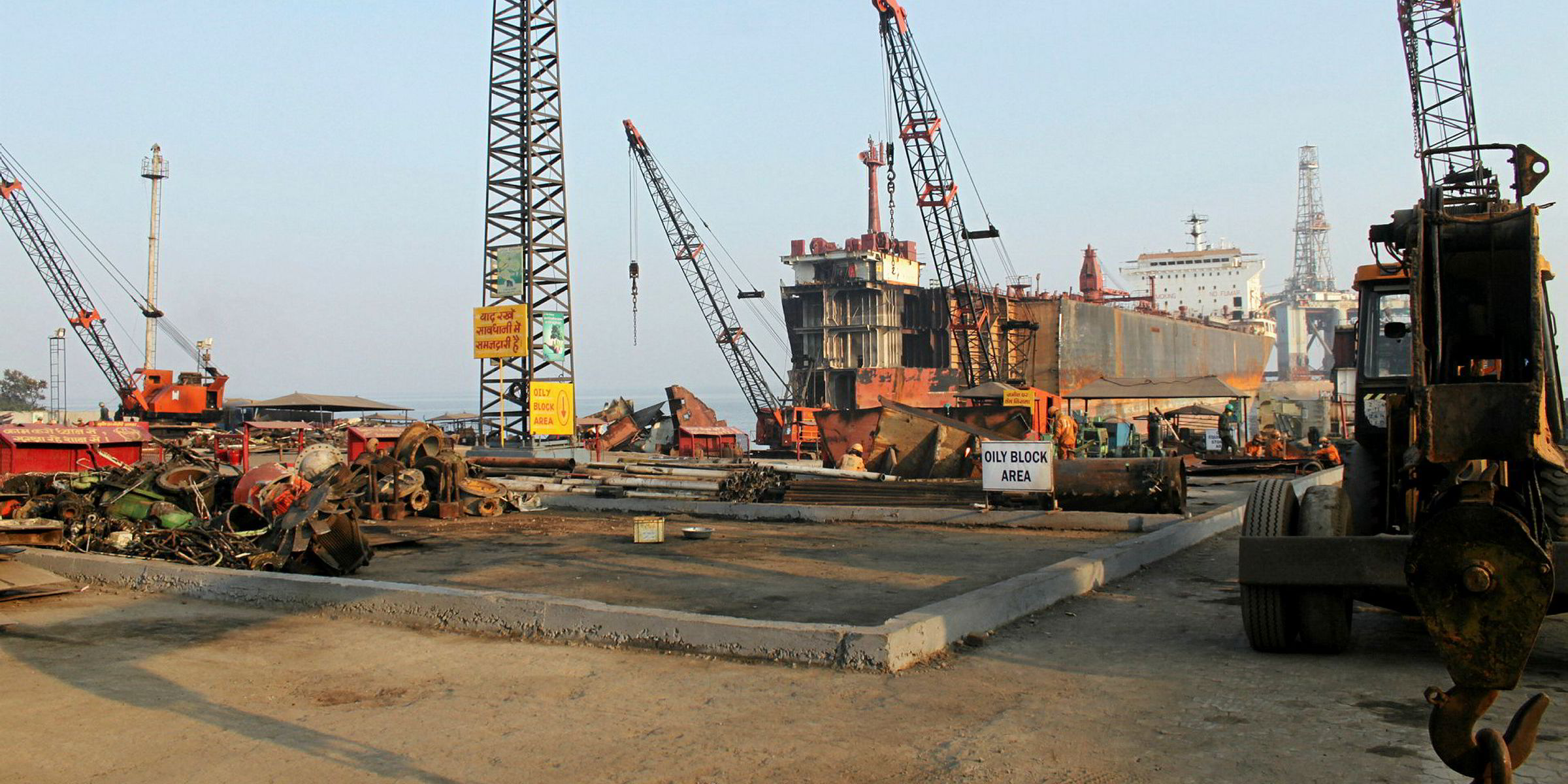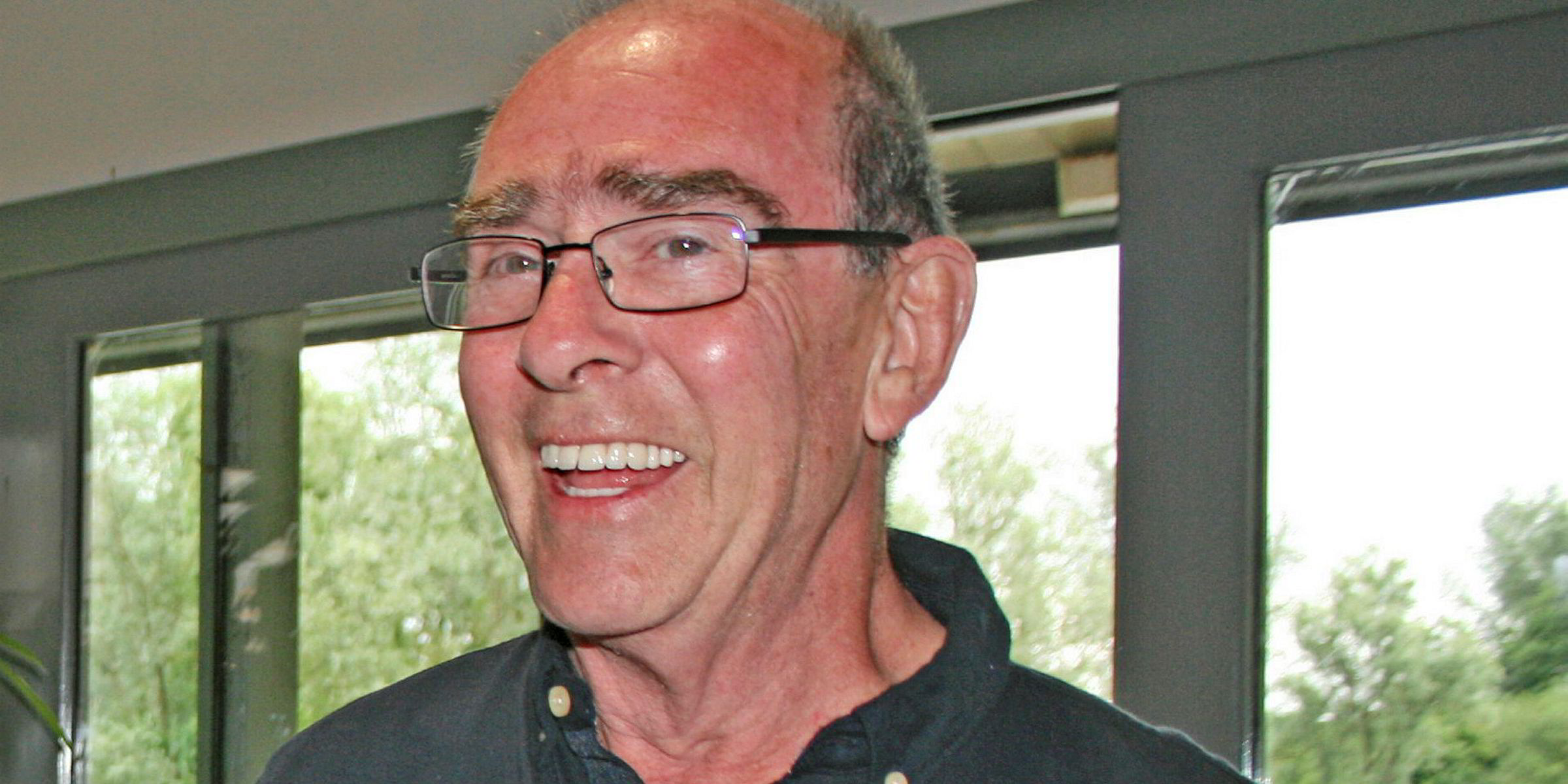Demolition market specialist Ed McIlvaney has warned of a potential environmental disaster unless the European Commission approves the use of shiprecycling yards in the Indian sub-continent and China.
He says more areas of the world could become dumping grounds “where old ships are left to simply rot away”.
McIlvaney’s analysis of ship scrapping in 2017 shows that only 39 vessels of 83,077 dwt — or 61,300 ldt — were sold for recycling in European Union countries.
Source: Ed McIlvaney
The average size was around 2,130 dwt (or 1,600 ldt), reflecting the global dependence of owners on Asian yards to scrap large bulkers and tankers.
McIlvaney tells TradeWinds that the European Commission needs to recognise the progress made, particularly within India but even by some Bangladeshi breakers, in making their yards compliant with the Hong Kong International Convention for the Safe and Environmentally Sound Recycling of Ships (HKC).
Brussels has set exacting requirements in its Ship Recycling Regulation (SRR), which comes into force at the end of this year and will require European-flag vessels to be scrapped at an approved yard.
Applications are being studied from India, Turkey and China but the European Commission still has to approve any non-EU facilities. So far, all of those approved yards are based in Europe.
Main opposition to the Indian sub-continent stems from the use of beaching.
Green shiprecycling lobby group NGO Shipbreaking Platform has been especially critical of Pakistan following a series of accidents at Gadani. It has called for breakers’ yards generally to be moved away from tidal beaches to ensure the safety of workers and containment of pollutants.
But McIlvaney highlights investment by breakers such as Shree Ram Vessel Scrap in India to avoid contaminating inter-tidal areas and the use of cranes for offloading.
McIlvaney says there are already 42 yards in India that are HKC-compliant — eight NK Class ones, five with the Indian Register of Shipping and the remainder with Rina.
Another 10 facilities are being upgraded and he says approval is expected for half of them by July.

To show that it is compliant, the Shree Ram Group has also produced a video stating that tertiary cutting by the breaker is only on impermeable areas, and showing International Labour Organization-approved dormitories for workers and magnetic slag gatherers used during cutting. The video tracks the dismantling of the 4,360-teu containership Sea-Land Charger (built 1997).
McIlvaney concedes that, so far, Bangladesh has only one HKC-compliant facility, approved by Rina — and that is unlikely to change soon because the government has decided that any hazardous materials must be stored at yards for up to five years because they lack the means of disposal.
Pakistan has no scrapping facilities with HKC statements of compliance (SoC) and, it is understood, no SoC applications.
To emphasise the importance of Asia as an end-of-life vessel hub, McIlvaney notes that, according to his preliminary figures, only 109 vessels of 385,000 dwt — or 210,000 ldt — were sold in 2017 to countries outside of India, Pakistan, China and Turkey.
This represents a fraction of the 977 vessels of 35.85 million dwt (8.06 million ldt) sold globally for recycling, with the Indian sub-continent the prime destination.
McIlvaney says final destination has not been disclosed of several vessels among the 107 dispatched for scrapping outside of the Indian sub-continent, China and Turkey. However, 18 are known to have gone to Denmark, five to Belgium, four each to Spain and Latvia, three to Norway, two to the Netherlands and one each to the UK, Finland and Lithuania.
McIlvaney reflects on a trip he made along the River Plate in Argentina, where he saw numerous vessels left rusting away. The same also happens in Nigeria and elsewhere.
He claims that the “world will be a collection place for old buckets just rotting along the coastline” if the European Commission refuses to approve breakers in Asia.



